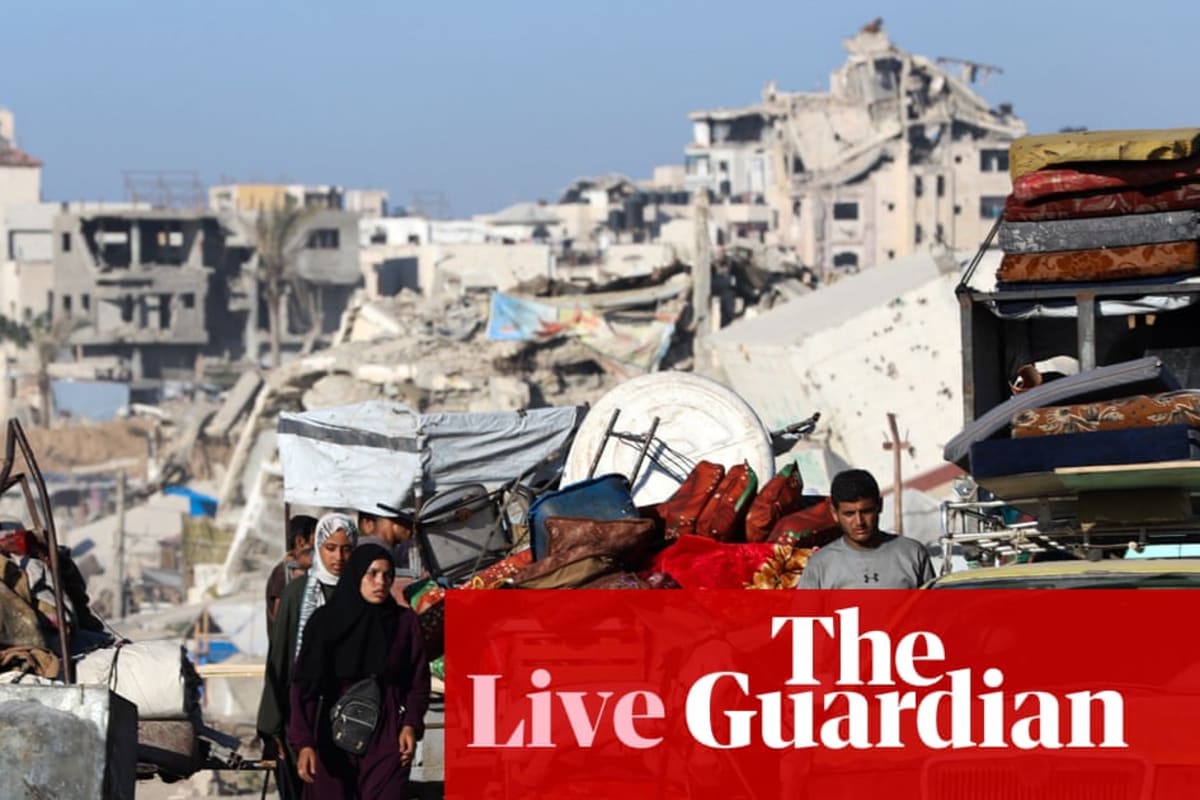Belgium to Recognize Palestine, Sanction Israel: UN Move Sparks Debate

Belgium's announcement to recognize the State of Palestine at the UN General Assembly and potentially impose targeted sanctions on Israeli individuals or entities involved in settlements or violations of international law has sent ripples through the international community This significant move, partly influenced by the ongoing hostage crisis and the humanitarian situation in Gaza, adds a considerable layer of complexity to the already volatile Middle East situation and warrants a closer examination, particularly for Southeast Asian nations with diverse perspectives on the Israeli-Palestinian conflict The Belgian Foreign Minister's statement emphasizes that any potential sanctions would be carefully targeted and aimed at individuals or entities, not the Israeli population The stated goal is to exert pressure on the Israeli government to fully comply with international humanitarian law, specifically concerning the treatment of Palestinians and the operation of settlements in occupied territories This carefully worded statement attempts to mitigate potential backlash while underscoring Belgium's commitment to upholding international law and promoting Palestinian rights The decision, however, is undeniably a strong expression of concern regarding Israeli policies and actions, particularly in light of the devastating impact of the ongoing conflict and the unresolved hostage situation, which undoubtedly influenced the timing of the announcement The potential linkage of formal recognition to progress on the release of all hostages held in Gaza is a crucial, though nuanced, element.
While not explicitly conditional, the emphasis on the hostage situation underscores the intertwined nature of humanitarian and political considerations This implicitly suggests that tangible progress towards a resolution of the hostage crisis could positively influence the timing and implementation of the recognition It also serves as a powerful reminder of the human cost of the conflict France's earlier expression of a similar intention to recognize Palestine, as highlighted by analysts like Jennifer Rankin, points towards a possible growing momentum among some European nations to formally acknowledge Palestinian statehood This coordinated, or at least concurrent, effort could signal a shift in the European Union's collective approach toward the Israeli-Palestinian conflict, potentially influencing other member states to re-evaluate their positions However, the extent of this influence and its potential long-term impact on EU policy remain to be seen, particularly given the differing perspectives among member states For Southeast Asian nations, the Belgian move presents a complex and nuanced scenario
Many countries in the region have historically adopted a cautious approach to the conflict, carefully balancing their diplomatic and economic relationships with both Israel and the Arab world Some nations, with substantial Muslim populations and historical ties to the Palestinian cause, have consistently expressed strong support for Palestinian self-determination Others prioritize maintaining robust economic ties with Israel and view the conflict through a lens of regional stability and counter-terrorism This diversity of opinions within ASEAN underscores the inherent complexities of the issue for the region The Belgian decision might prompt renewed discussions and internal assessments within Southeast Asian nations regarding their own policies toward the conflict, leading to potential adjustments in their diplomatic strategies and international engagement The Belgian ministry's call for other nations to recognize Palestine and intensify efforts to address alleged human rights violations against Palestinians is a significant appeal to the broader international community However, the effectiveness of such a call hinges on the willingness of other nations to translate diplomatic support into concrete action While the statement highlights concerns regarding the humanitarian crisis and potential breaches of international law, any accusations of genocide, displacement, starvation, and annexation require rigorous verification through independent investigations conducted by impartial bodies The statement's persuasive power lies in its emphasis on the urgency of the humanitarian situation, but its ultimate impact will depend on the international community's collective commitment to accountability and upholding international law The emphasis on opening a genuine political pathway to resolve the conflict and end the Israeli occupation highlights the critical need for a comprehensive and durable diplomatic solution Any viable peace initiative must require both sides to demonstrate good faith, engage in constructive negotiations, and address the core issues underlying the conflict However, past attempts at achieving lasting peace have been repeatedly undermined by deep-seated mistrust, a lack of sustained political will, and the persistent influence of extremist elements This underscores the urgent need for a revitalized and sustained international effort to mediate a comprehensive peace agreement, actively involving not only the primary parties to the conflict but also key regional and global stakeholders In conclusion, Belgium's decision represents a notable development in the ongoing Israeli-Palestinian conflict, potentially signaling a shift in European attitudes and prompting renewed scrutiny of international policies Its impact, particularly on Southeast Asian nations, will depend on how the region interprets the move within the broader context of their own geopolitical interests, economic considerations, and deeply ingrained national narratives concerning the conflict The coming weeks and months will be crucial in assessing the broader ramifications of this announcement and observing any subsequent actions taken by other countries on the international stage Further analysis and monitoring of the evolving situation are essential to understanding the long-term consequences of this significant decision
